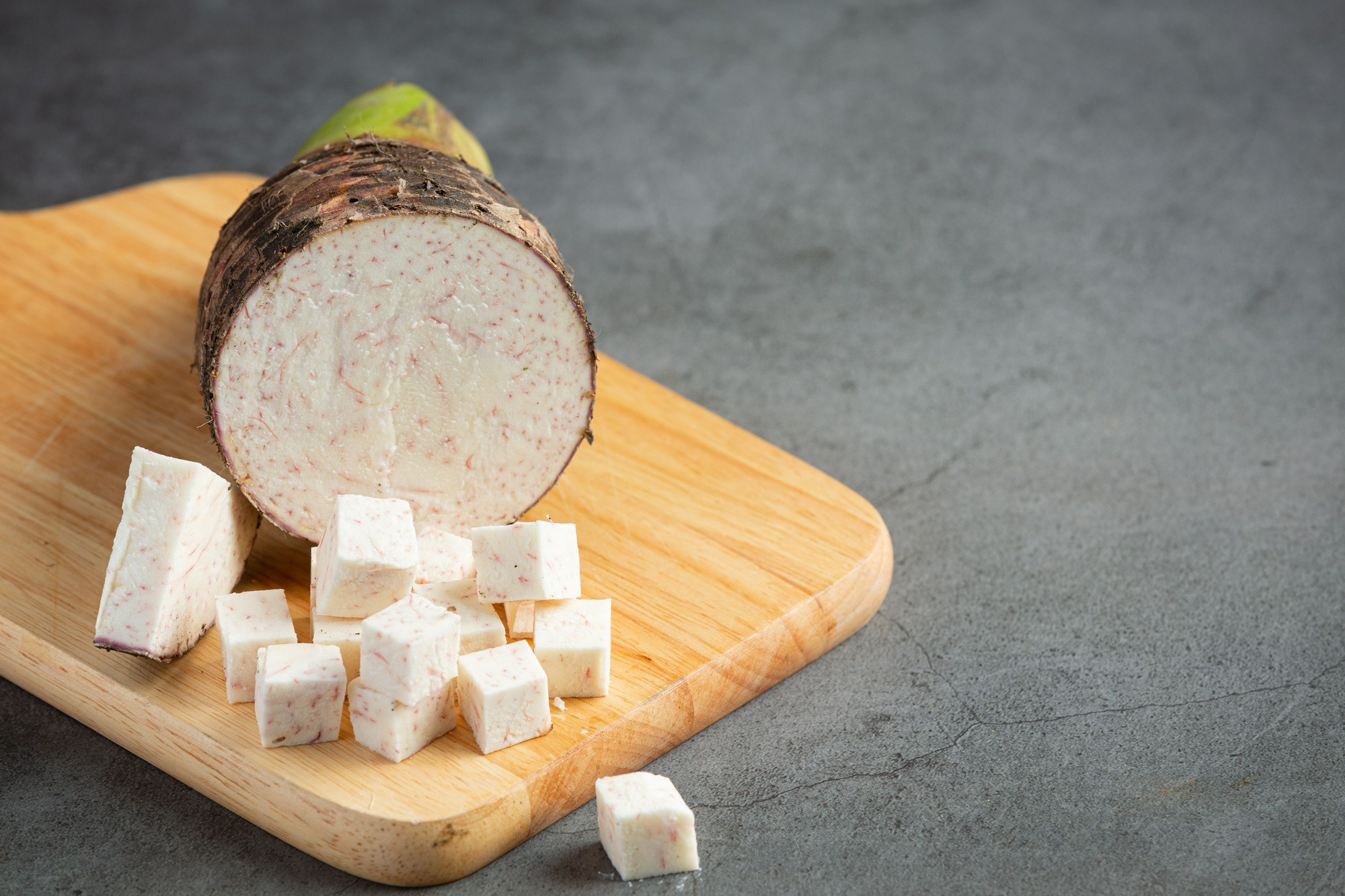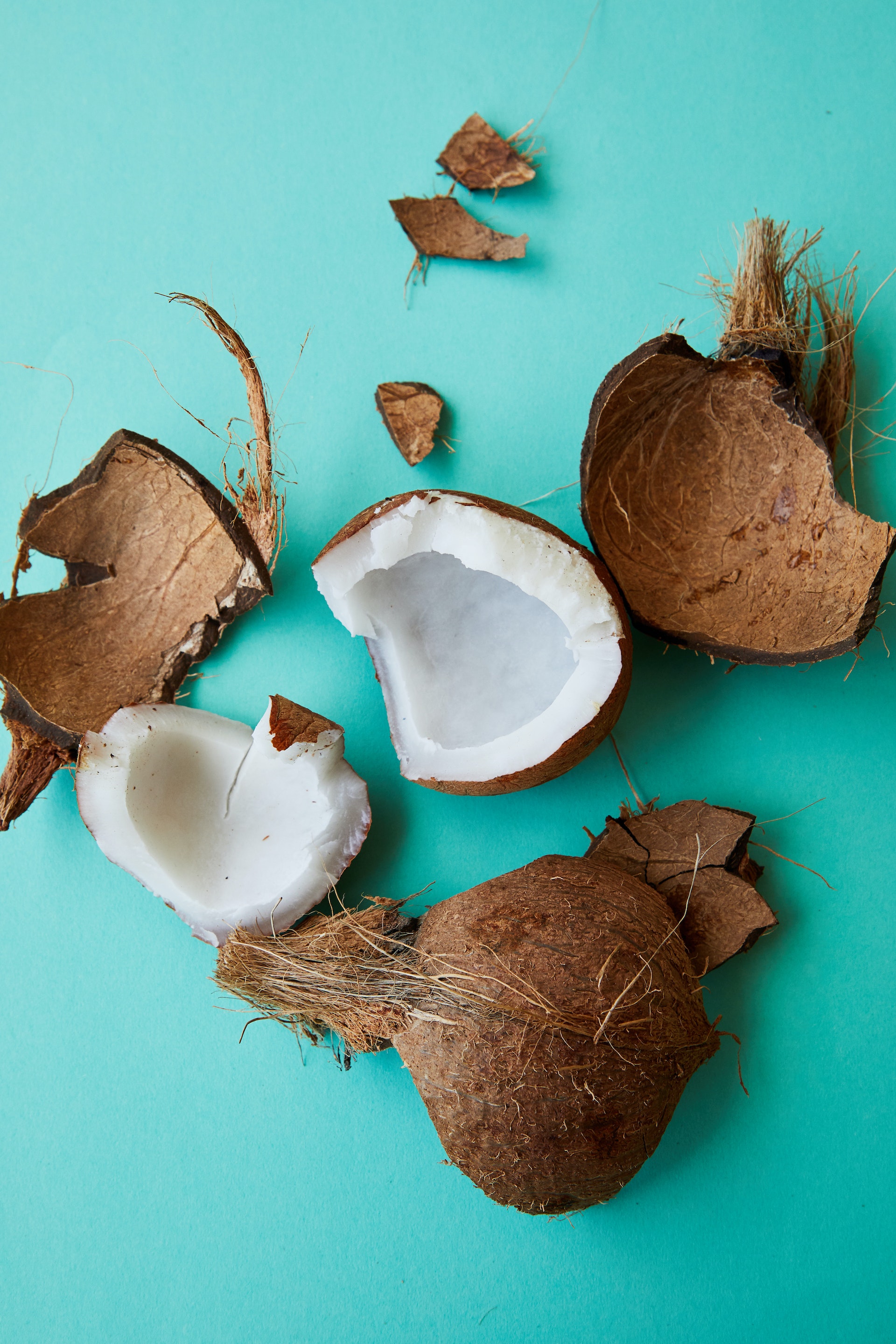
Taro is a versatile and popular root vegetable in Micronesian cuisine, highly regarded for its starchy and nutty flavor. It is a staple food in the region and holds cultural significance. The vegetable has a rough, brown outer skin with white or purplish flesh on the inside, and it can vary in shape and size, ranging from small to large tubers.
To prepare taro dishes like "taro pudding" or "taro soup," the following ingredients are typically used:

Taro: The main ingredient, the taro root, is peeled, cleaned, and cut into pieces for cooking.
Coconut milk: A rich, creamy liquid extracted from grated coconut flesh is a key component. It adds a distinctive tropical flavor and a smooth texture to the dishes.
Water or broth: To cook the taro, water or a flavorful broth may be used as a base.
Seasonings: Depending on the recipe and regional preferences, seasonings like salt, pepper, or other local spices might be added to enhance the flavors.

Instructions for preparing taro pudding:
1-Peel and clean the taro root, then cut it into manageable pieces.
2-In a pot, boil or steam the taro pieces until they are tender and easily pierced with a fork.
3-Drain any excess water and transfer the cooked taro to a mixing bowl.
4-Mash or puree the taro until it reaches a smooth consistency.
5-Gradually add coconut milk to the mashed taro, mixing thoroughly to create a creamy texture. The amount of coconut milk can be adjusted to achieve the desired consistency.
6-If a sweeter taste is desired, add optional sweeteners like sugar or honey, stirring well to incorporate the sweetness evenly.
7-Finally, season the taro pudding with your choice of seasonings, such as a pinch of salt, a dash of pepper, or any preferred local spices to enhance the flavor.
8-Serve the taro pudding warm or chilled, depending on personal preference.
The nutritional values, including calories, carbs, protein, fat, and sodium, can vary based on the specific recipe and portion sizes. However, here are approximate values for the main ingredients used in the dish:
Taro (100g serving):
- Calories: 112 kcal
- Carbohydrates: 26g
- Protein: 1.5g
- Fat: 0.2g
- Sodium: 11mg
Coconut Milk (100g serving):
- Calories: 230 kcal
- Carbohydrates: 6.5g
- Protein: 2.3g
- Fat: 23.8g
- Sodium: 15mg
Water or Broth (varies based on amount used):
- Calories: Negligible
- Carbohydrates: Negligible
- Protein: Negligible
- Fat: Negligible
- Sodium: Varies based on broth or seasoning used
Seasonings (salt, pepper, etc.):
- Calories: Negligible
- Carbohydrates: Negligible
- Protein: Negligible
- Fat: Negligible
- Sodium: Varies based on the amount of seasoning used
Please note that these values are approximate and based on general nutritional information for the individual ingredients. The nutritional content of the final taro pudding will depend on the specific recipe and quantities used for each ingredient. If you have specific dietary concerns or requirements, it's essential to calculate the nutritional values based on the exact recipe and portion sizes you use.


Comments